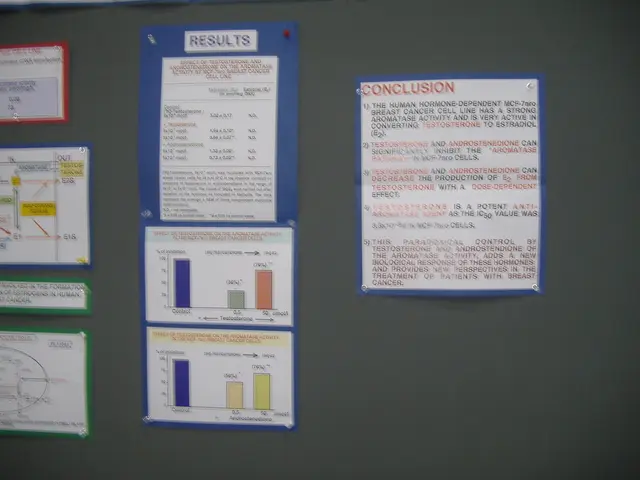Government Revenue Expansion Proposal: Extend Nvidia's Revenue-Sharing Agreement to Other Business Sectors
In a recent development, a letter has been circulating, suggesting the implementation of a 10% revenue share policy for businesses that receive federal subsidies or share patents with universities receiving federal grants. This proposal, if enacted, would have significant implications for both the business sector and the federal government.
The proposed policy would apply to various sectors, with the exact businesses and types of sales yet to be specified. It is unclear whether this action would require legislative approval or an executive order. The revenue generated could potentially be used to create a sovereign wealth fund, although details on its management and use remain scarce.
The proposal intersects with federal grant law, Bayh-Dole patent licensing rules, government fiscal policy, and private sector contractual arrangements. Legal compliance would necessitate careful drafting to abide by federal statutes and regulations, while the economic implications should be weighed to balance innovation incentives against federal financial stewardship.
One key aspect to consider is the compliance with federal regulations. Businesses that receive federal subsidies are typically subject to strict regulations on how funds are utilized and reported. A mandated 10% revenue share could be viewed as a form of cost-sharing or recoupment, which must comply with federal grant terms and federal acquisition regulations.
Universities receiving federal grants are often bound by the Bayh-Dole Act, which governs inventions made with federal funds. The Act allows universities to retain patent rights but requires them to share royalties or income generated from licensed patents with the federal government or the research funding agency under certain conditions. A 10% revenue share policy for businesses licensing university patents may need to align with these statutory obligations to avoid infringing on federal rights or donor agreements.
Revenue sharing typically involves apportioning a percentage of income or profits to another party, governed by contracts and applicable law. Government revenue-sharing programs have historical precedent but usually involve inter-governmental transfers rather than direct business obligations. Imposing a fixed 10% revenue share could require new legislation or regulatory authority, especially if it modifies existing funding agreements or patent licensing terms.
Introducing such a policy could affect business incentives to engage in federal programs or patent commercialization. It may be viewed as a clawback provision on government-supported innovation or subsidies, potentially reducing private investment willingness and innovation output. Conversely, the policy could enhance federal recoupment of public investment and increase accountability, if crafted carefully.
Implementing and monitoring a 10% revenue share requires clear definitions of revenue, audit rights, enforcement mechanisms, and dispute resolution procedures. It would also necessitate alignment with federal budget rules and grant management practices to ensure fund integrity and avoid waste or mismanagement.
The letter proposing this expansion was authored by June Thompson, from Los Angeles. However, it's worth noting that the letter does not mention any potential negative economic impacts of this action.
In another development, a separate letter has expressed doubt that the current Democrats can save the country from Trump. This letter, like the revenue share proposal, highlights the ongoing political debates and discussions shaping the nation's future.
References: 1. Office of Management and Budget, Circular A-11, Part 5, Acquisition of Commercial Items. 2. Bayh-Dole Act, 35 U.S.C. § 200-212. 3. National Science Foundation, Grant Policy Manual, Chapter VI.C.1.j (Patent Rights). 4. Federal Acquisition Regulation, FAR Part 52.219-1 (Revenue-Sharing Agreements). 5. Congressional Research Service, Federal Revenue-Sharing Programs: Historical Background and Current Status.
- The revenue share policy proposal, penned by June Thompson from Los Angeles, suggests a 10% revenue share for businesses that receive federal subsidies or share patents with universities receiving federal grants, potentially affecting both the federal government and the business sector.
- Implementing the proposed policy would need to comply with federal grant terms, federal acquisition regulations, and the Bayh-Dole Act, as universities receiving federal grants are bound by the Act regarding patent rights and royalties.
- A 10% revenue share policy for businesses licensing university patents may need to align with these statutory obligations to avoid infringing on federal rights or donor agreements.
- The concept of revenue sharing, which involves dividing a percentage of income or profits among multiple parties, could require new legislation or regulatory authority, especially if it modifies existing funding agreements or patent licensing terms.
- The economy, business, politics, and general news are all intertwined as the enforcement and implications of this policy unfold, highlighting the ongoing debates and discussions shaping the future of the nation.




